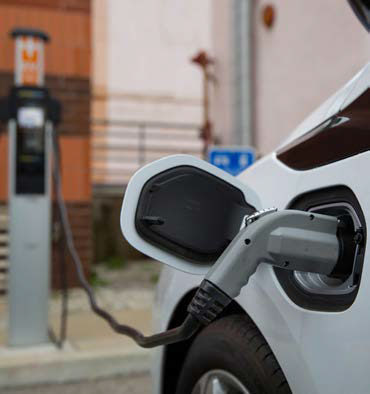Brice Wallace
Utah could avoid nearly 100,000 lost workdays caused by air pollution during the next three decades if the nation transitions to zero-emission vehicles, according to a new study.
The American Lung Association’s “Zeroing in on Healthy Air” report projects that such a transition would resulted in $5.7 billion in public health benefits in the state by the year 2050, including up to 506 avoided deaths, 26,100 avoided asthma attacks and 94,300 avoided lost workdays due to cleaner air.{mprestriction ids="1,3"}
The report indicates that the impacts would be concentrated in Salt Lake City, Provo and Orem. The area would see $4.9 billion in health benefits, including 440 avoided deaths, 23,600 avoided asthma attacks and 85,500 avoided lost workdays.
Nationally, the move to clean vehicles, it said, would equate to more than $1.2 trillion in health benefits and $1.7 trillion in additional climate benefits by 2050. It projected 110,000 lives saved due to less pollution, more than 2.7 million asthma attacks avoided and over 13 million avoided workdays lost by 2050.
Available at Lung.org/EV, the report outlines potential broad benefits if all new passenger vehicles sold are zero-emission by 2035 and all new trucks and buses sold are zero-emission by 2040. The report projects that the nation’s electric grid will be powered by clean, non-combustion electricity replacing dirty fossil fuels by 2035.
“The transportation sector is a leading contributor to air pollution and climate change,” said Nick Torres, director of advocacy for the American Lung Association in Utah. “Thankfully, the technologies and systems are in place to make these benefits a reality, especially in communities most impacted by harmful pollution today.
“We need our state and local leaders to act to implement equitable policies and invest in the transition to healthy air today. This is an urgent health issue for millions of people in the U.S.”
The lung association said climate change threatens the health of all Americans, from wildfires and extreme storms to worsening air pollution. Poor air quality caused by transportation and electricity generation contributes to a wide range of negative health impacts, including childhood asthma attacks, impaired lung function and development, lung cancer, heart attacks, strokes and premature deaths, it said.
“These are sources of health disparities in lower-income communities and communities of color, both in terms of exposure to harmful air and the associated health consequences,” it said in a news release about the report.
“Achieving these major benefits to our health and our climate will require dedicated and sustained leadership. Investment at all levels of government, and public education and engagement will ensure the transition to zero-emission vehicles provides clean air for everyone.”{/mprestriction}








